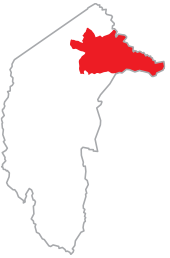Candidates by Electorate
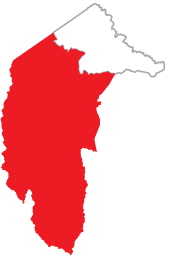
| First Name | Surname | Party / Independent | Signed? Click YES to download statement |
|---|---|---|---|
| David | Smith | ALP | N |
| Therese | Faulkner | Australian Progressive | YES |
| Ben | Rushton | Great Australian | N |
| Johnathan | Davis | Greens | N |
| Ed | Cocks | Liberal | N |
| Matt | Donnelly | Liberal Democratic | N |
| Tony | Hanley | United Australia | N |
| Jamie | Christie | Independent | N |
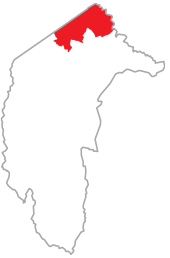
| First Name | Surname | Party / Independent | Signed? Click YES to download statement |
|---|---|---|---|
| Andrew | Leigh | ALP | N |
| Kagiso | Ratlhagane | Australian Progressive | N |
| Andrew | Braddock | Greens | YES |
| Leanne | Castley | Liberal | N |
| Glen | Hodgson | United Australia | N |

| First Name | Surname | Party / Independent | Position | Signed? Click YES to download statement |
|---|---|---|---|---|
| Katy | Gallagher | ALP | 1 | N |
| Nancy | Waites | ALP | 2 | N |
| David | Kim | Christian Democratic | YES | |
| Zed | Seselja | Liberal | 1 | N |
| Robert | Gunning | Liberal | 2 | N |
| Penny | Kyburz | Greens | 1 | YES |
| Emma | Davidson | Greens | 2 | N |
| Peter | Walter | United Australia | 1 | N |
| Rebecah | Hodgson | United Australia | 2 | N |
| John | Haydon | Sustainable Australia | 1 | N |
| Joy | Angel | Sustainable Australia | 2 | N |
| Shane | van Duren | Conservative National | 1 | N |
| Scott | Birkett | Conservative National | 2 | N |
| Anthony | Pesec | Group C | 1 | N |
| Gary | Kent | Group C | 2 | N |
| Nick | Houston | Ungrouped | N | |
| Gary | Cowton | Ungrouped | N |
Candidate Statement and Charter of Democratic Commitments
Candidate Statement and Charter of Democratic Commitments
Q1 Why are you qualified to be our representative? (50 words)
Q2 If elected, how will you engage with, consult and report to your electorate during your term in parliament? (Up to 100 words)
Q3 What is your position on these major issues: (20 words each)
- Support for a federal independent commission against corruption or integrity commission** wording refined according to final proposal
- Open parliamentarian diaries / real time lobbyist and visitor register
- Real time reporting of all donations and in-kind electoral and related support
- Caps on political / electioneering related donations — to individuals and small amounts.
- Do you support allowing the ACT to have the full spectrum of legislative powers available to the states?
I will abide by the Canberra Alliance Charter of Democratic Commitments as follows:
(NB If you are uncomfortable with the wording in any these statements, please amend them and show any amendments in italics and underline them)
- I will at all times tell the truth to the citizens and voters of Canberra and be honest in all aspects of my work as an elected representative of the Australian people.
- I will fully disclose and make public the sources and value of all political funding donations, contributions, gifts public and private in line with legal requirements.
- I undertake to be fair, ethical, compassionate and diligent in serving my electorate and the nation at all times, and to uphold the Australian value of “a fair go for all”.
- I will promote and support participatory and deliberative methods for policy, planning and legislative decisions, as appropriate and practical. This should include better use of new technology.
- I will place the public interest ahead of personal interests.
- I will never abuse or misuse the allowances, subsidies, concessions and privileges accorded to me by the people of the ACT and the ACT Legislative Assembly in my role as an elected representative.
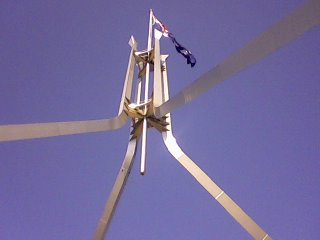
The Canberra Alliance wants better citizen participation in the processes of government decision making. We think our representatives should have an ongoing relationship with us, the voters, between elections. Our representatives should ask us and listen to our opinion about the important decisions that they make on our behalf.
The purpose of this Candidate Statement is to give, you the voters, the candidates’ own views of how they think they will represent you and their opinion of some of the important issues facing democracy in Australia.
This is the second Candidate Statement exercise the Alliance has done.
Feedback after the 2016 ACT election:
- showed people did use the website and accessed the candidate statements, and
- a few people told us that this has influenced their voting.
Analysis of the 2016 candidate statements and discussion with MLAs afterward show in brief:
- Our MLAs take a very traditional view of their representative relationship with voters
- They focus on being available for one-on-one interactions in public and by standard correspondence or email
- They had some interest in using social media but little interest in using traditional media
- Structured opportunities to meet constituents (meet and greet, mobile offices) were also favoured
- MLA initiated methods (surveys, asking for feedback) were rarely mentioned
- Interest in promoting or engaging through deliberative and participatory methods was mentioned by only six of the MLAs.
More information is in the 2016 CAPAD Candidate Statement analysis at a glance.
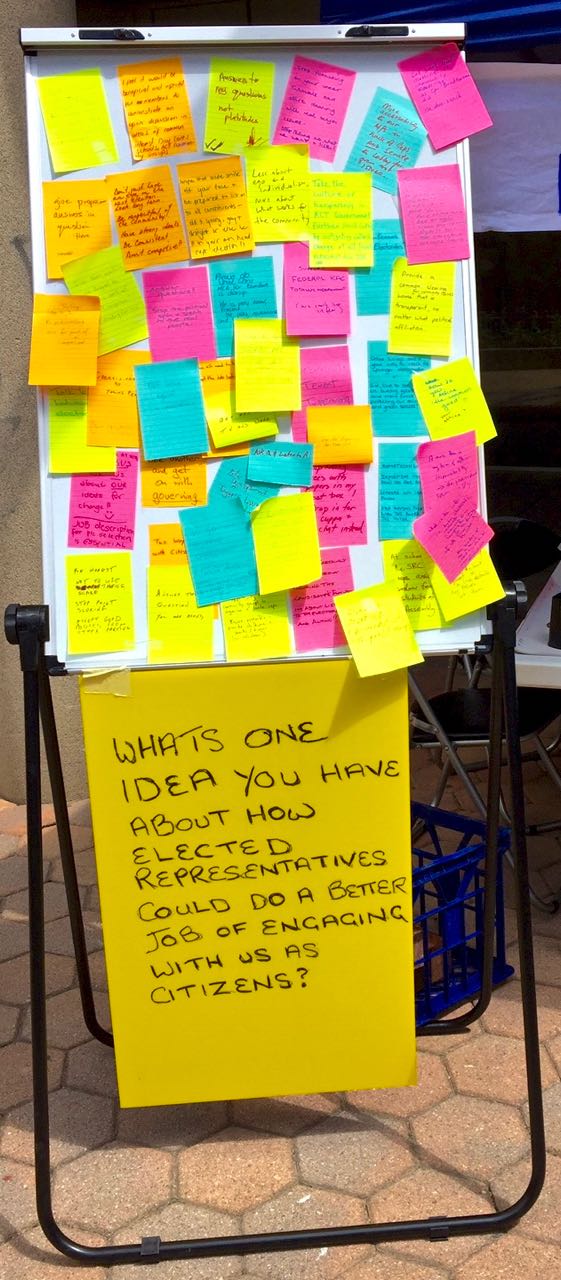
The Alliance set up a stall at SouthFest. We asked passers-by for their ideas about how elected representatives could do a better job of engaging us as constituents.
In essence people told us:
- They wanted elected representatives to be much more active at the community level, at local venues and in public spaces, to meet local people and hear their issues;
- They wanted their elected representatives to really listen to them;
- They wanted their elected representatives to focus on the public interest and govern for all people.
A summary of the themes that emerged is here.

